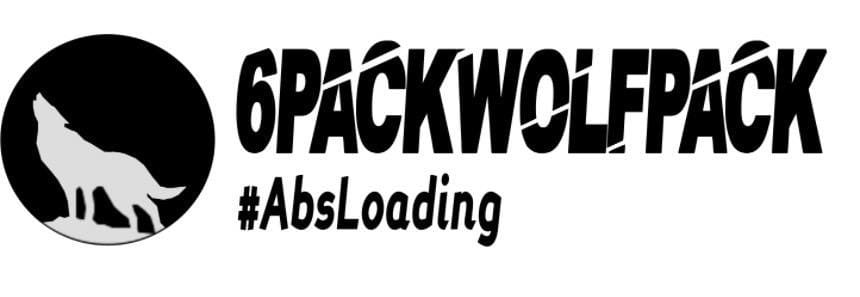When it comes to bodybuilding, training is only half the battle. Nutrition plays an equally critical role in building muscle, improving recovery, and achieving peak performance. The phrase "you are what you eat" couldn’t be more accurate in the world of bodybuilding, where every calorie, macronutrient, and micronutrient can make a difference in how your body performs and transforms. Here’s a detailed look at how nutrition fuels success in bodybuilding and how you can optimize your diet for maximum gains.
The Macronutrient Balance
The three primary macronutrients—protein, carbohydrates, and fats—form the foundation of any successful bodybuilding diet. Each serves a specific purpose and must be consumed in the right proportions to support muscle growth and overall health.
- Protein: The Building Block of Muscle
Protein is essential for muscle repair and growth. When you lift weights, you create tiny tears in your muscle fibers, and protein provides the amino acids necessary to rebuild them stronger and larger. Bodybuilders typically aim for 1.2 to 2.0 grams of protein per kilogram of body weight daily, depending on their training intensity and goals. High-quality protein sources include chicken, turkey, eggs, fish, tofu, lentils, and whey or plant-based protein powders. - Carbohydrates: The Energy Provider
Carbs are the body’s primary energy source, fueling your workouts and replenishing glycogen stores in your muscles. Complex carbohydrates like oats, brown rice, quinoa, and sweet potatoes provide sustained energy, while simple carbs like fruits are ideal for quick energy boosts post-workout. Carbohydrate intake should be adjusted based on your training volume, with higher levels during intense phases. - Fats: The Hormone Regulator
Healthy fats are vital for hormone production, including testosterone, which plays a key role in muscle growth. Fats also provide a concentrated energy source and aid in the absorption of fat-soluble vitamins. Incorporate sources like avocados, nuts, seeds, olive oil, and fatty fish like salmon into your diet. Aim for fats to make up about 20-30% of your total calorie intake.
Micronutrients: The Unsung Heroes
While macronutrients get most of the attention, micronutrients like vitamins and minerals are equally important. These nutrients support vital bodily functions, including energy production, immune health, and muscle contraction. For example:
- Calcium and Magnesium: Support muscle contraction and bone health.
- Vitamin D: Enhances calcium absorption and plays a role in muscle function.
- Zinc: Contributes to testosterone production and immune health.
- Iron: Helps deliver oxygen to muscles during exercise.
Consuming a variety of colorful fruits and vegetables, whole grains, and lean proteins ensures you get a broad spectrum of micronutrients.
The Importance of Meal Timing
Nutrient timing is a critical aspect of bodybuilding nutrition. When you eat can influence your performance and recovery, helping you make the most of your training.
- Pre-Workout Nutrition
A meal rich in easily digestible carbohydrates and moderate protein consumed 1-2 hours before training can provide the energy you need for an intense workout. For example, a banana with peanut butter or oatmeal with a scoop of protein powder works well. - Post-Workout Nutrition
After your workout, your body enters a recovery mode, making it the perfect time to replenish glycogen stores and kickstart muscle repair. A combination of fast-digesting protein (like whey) and simple carbs (like a banana or rice cakes) within 30-60 minutes of training is ideal. - Frequent Meals
While the "six meals a day" rule is no longer considered essential, spreading your protein intake across multiple meals can enhance muscle protein synthesis throughout the day.
Hydration: The Overlooked Factor
Staying hydrated is crucial for optimal performance and recovery. Dehydration can impair strength, endurance, and focus, making it harder to train effectively. Aim to drink at least 2-3 liters of water daily, and more if you’re sweating heavily during workouts. Electrolyte drinks can be beneficial during long or intense training sessions to replenish lost minerals like sodium, potassium, and magnesium.
Supplements: Enhancing Your Diet
While whole foods should form the bulk of your nutrition, certain supplements can help fill gaps and optimize your results:
- Protein Powders: Convenient for meeting daily protein goals, especially post-workout.
- Creatine: Enhances strength and muscle gains by increasing energy production during high-intensity workouts.
- Branched-Chain Amino Acids (BCAAs): May reduce muscle soreness and support recovery.
- Omega-3 Fatty Acids: Reduce inflammation and support joint health.
- Multivitamins: Ensure you’re meeting your micronutrient needs.
Bulking vs. Cutting: Adjusting Your Diet
Bodybuilders often cycle between bulking (muscle gain) and cutting (fat loss) phases, each requiring a different nutritional approach:
- Bulking: Focus on a calorie surplus with an emphasis on protein and carbs to support muscle growth.
- Cutting: Shift to a calorie deficit while maintaining high protein intake to preserve muscle mass.
Tracking your calories and macronutrients using apps like MyFitnessPal can help you stay on track and make adjustments as needed.
Consistency Is Key
The most critical factor in bodybuilding nutrition is consistency. Achieving your fitness goals requires long-term dedication to both training and eating habits. Plan your meals in advance, track your progress, and stay adaptable to ensure your diet aligns with your goals.


